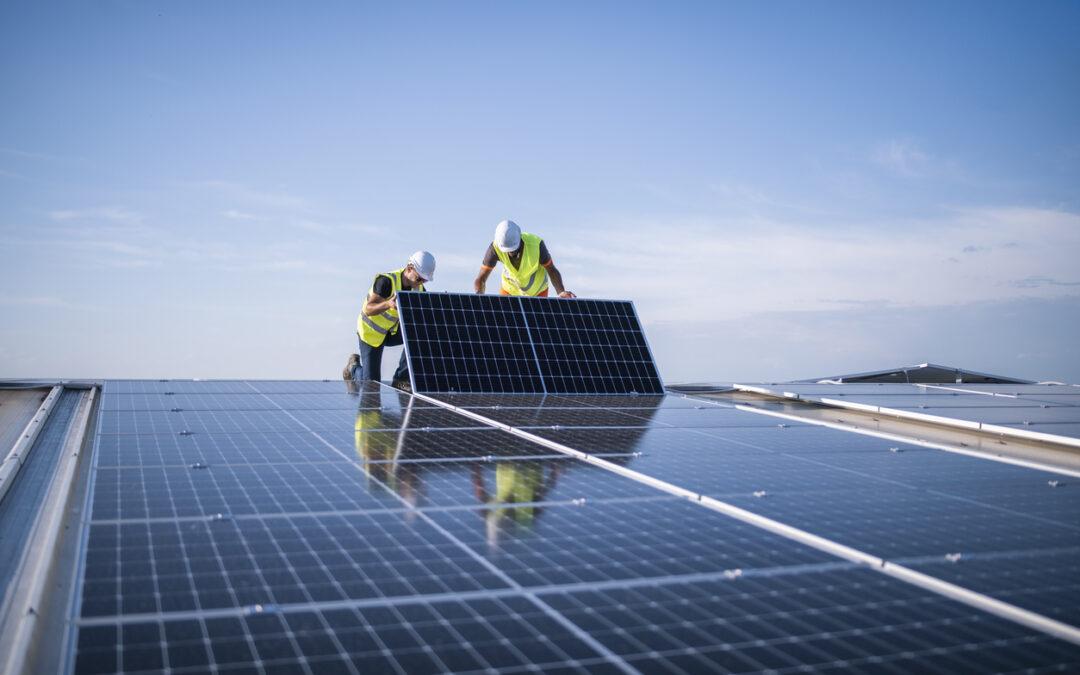Investing in solar energy for your commercial property is a significant decision that promises long-term financial savings and environmental benefits. However, the installation process can seem daunting if you’re unfamiliar with what it entails. Understanding the steps involved can help businesses in Minnesota and beyond prepare for a smooth transition to solar energy. In this blog, we’ll break down the commercial solar installation process, from initial consultation to system activation, to help you know what to expect.
Initial Consultation and Site Assessment
The first step in the commercial solar installation process is a comprehensive consultation. During this phase, solar energy experts will discuss your business’s energy needs, financial goals, and site specifics. This consultation helps determine the best approach to designing a solar energy system that meets your unique requirements.
Following the initial consultation, a detailed site assessment is conducted. Solar technicians will visit your property to evaluate several critical factors, including roof condition and orientation, shading analysis, and electrical infrastructure. This site assessment is crucial for designing an efficient and effective solar power system tailored to your specific location.
System Design and Proposal
Using the data gathered during the site assessment, the solar company will create a custom design for your commercial solar system. This design includes the layout of the solar panels, the type of panels and inverters to be used, and any additional components required for optimal performance.
Once the design is complete, you’ll receive a detailed proposal outlining the project scope, expected energy production, financial savings, and total cost. The proposal also includes an analysis of available incentives, tax credits, and financing options to help reduce the upfront costs.
Permitting and Approvals
Before installation can begin, the necessary permits and approvals must be obtained. This step involves acquiring building and electrical permits from local authorities and coordinating with your utility provider to connect the solar system to the grid and set up net metering, which allows you to sell excess energy back to the utility. The solar company typically handles this paperwork, ensuring all regulations and requirements are met.
Installation
Once the permits are secured, the installation phase begins. The solar company will schedule a convenient time for the installation, ensuring minimal disruption to your business operations. Preparation includes ordering the necessary equipment and coordinating with installation crews.
The actual installation involves several key steps:
- Mounting the Panels: Solar panels are mounted on the roof or ground using racks designed to withstand local weather conditions.
- Electrical Work: Electricians will connect the solar panels to inverters and integrate the system with your building’s electrical infrastructure.
- System Testing: The entire system is thoroughly tested to ensure everything is functioning correctly and safely.
Inspection and Interconnection
After the installation is complete, a final inspection is conducted by local authorities to ensure the system complies with all building codes and safety regulations. This step is crucial for obtaining the final approval to activate the system.
Once the system passes the inspection, the utility company will complete the interconnection process. This involves installing a bi-directional meter that tracks both the energy your system generates and the energy you consume from the grid.
System Activation and Monitoring
With all inspections and approvals completed, your commercial solar system is ready to be activated. The solar company will walk you through the activation process, ensuring you understand how to operate and monitor the system.
Modern solar systems come with monitoring software that allows you to track energy production and system performance in real-time. Regular monitoring helps identify any issues early, ensuring your system operates at peak efficiency. Additionally, routine maintenance checks by the solar provider can help extend the lifespan of your system and maximize your return on investment.
Benefits of Commercial Solar Projects
One of the most compelling reasons for businesses to invest in solar energy is the potential for significant cost savings. By generating your own electricity, you can reduce your reliance on the grid and lower your monthly utility bills. Over time, these savings can offset the initial investment, leading to substantial financial benefits.
Switching to solar energy also demonstrates your commitment to sustainability. Solar power reduces greenhouse gas emissions and decreases your business’s carbon footprint. This environmental responsibility can enhance your brand reputation and attract eco-conscious customers and partners.
Installing a commercial solar system provides greater energy independence. By generating your own power, you are less vulnerable to fluctuations in energy prices and potential disruptions in the grid. This reliability is particularly valuable for businesses that rely heavily on consistent energy supply.
Choosing the Right Solar Partner
Selecting a reputable solar company with experience in commercial installations is crucial. Look for companies with a proven track record, positive customer reviews, and industry certifications. The best solar providers offer comprehensive services, from initial consultation and design to installation and maintenance. A full-service company can manage every aspect of the project, ensuring a seamless and hassle-free experience.
Excellent customer support is essential for a successful solar project. Choose a company that offers ongoing support and maintenance services, ensuring your system continues to perform optimally for years to come.
Minnesota Commercial Solar Panel Installers
Understanding each phase of a commercial solar system installation can help businesses in Minnesota and beyond prepare for a smooth and successful transition to solar energy. By partnering with an experienced solar provider like Cedar Creek Energy, you can ensure your project is handled professionally, maximizing both financial and environmental benefits. Ready to go solar? Contact Cedar Creek Energy today to start your journey towards sustainable and cost-effective energy solutions.

